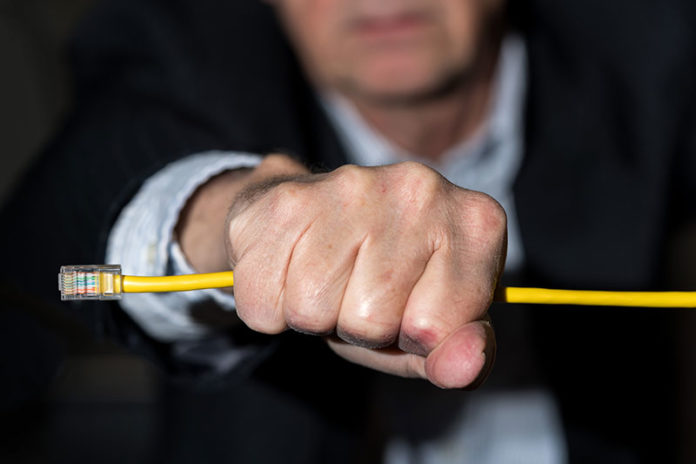Yesterday the Senate voted to repeal the recent changes to net neutrality rules made by the Federal Communications Commission.
The measure was backed by all 49 Democrats in the Senate, along with 3 Republican Senators: Susan Collins of Maine, Lisa Murkowski of Alaska and John Kennedy of Louisiana. (In other words, it was backed by 49 Democrats and 3 Democrats-in-Republicans’-Clothing.
This measure now goes to the House, but it’s not likely to pick up any traction there. With the House firmly in Republican hands, this pro net-neutrality effort will almost certainly stall out and die. President Trump isn’t likely to back it either.
This is probably a tactical error for Trump; net-neutrality is one of those issues that Republicans have shied away from, because they recognize that although it’s probably popular with most of their base voters (who wants to pay more for worse internet?) it’s not popular with most of their donors.
Democrats obviously don’t have to worry about that issue, and they have been able to make net-neutrality something of a platform. Likely they’ll make it even more of an issue in coming elections.
By embracing a more populist, pro-consumer vision of net-neutrality, Trump could cut off some of the net-neutrality attacks at the pass, so to speak.
But so far he’s stuck by the deregulators, like FCC commissioner Ajit Pai, who have killed net-neutrality while arguing that it will lead to greater internet innovation. It might do that, maybe. But killing net-neutrality might also let the already too-powerful cable companies fully solidify their grip on the market, and start charging more for worse services.
It’s all up in the air at the moment, and frankly, net-neutrality was probably a good thing. Despite the fact that the people speaking most vocally in favor of it were raging lefties, the law as it stood was not awful. It’s a shame that it’s dead now.
Because the government making a legal commitment to keep the internet open and free, and ensuring that the cable companies treat every kind of internet user the same, was probably a good thing. It was certainly pro-consumer and certainly a law that defended the little guy.
It probably wouldn’t hurt Trump’s reputation with young voters, or small business owners, or really any voting demographic other than “cable executives”, to embrace that kind of law. But so far he’s set himself and his administration against it.
So the Dems in the Senate have taken matters into their own hands. They no doubt recognize that the very popular net-neutrality laws are something they can exploit for political gain against Trump in 2020. So it’s no surprise they voted to reject Ajit Pai’s decision to kill the internet as we know it.
And Susan Collins has been open about her support for net-neutrality leading up to the vote. But Lisa Murkowski’s and John Kennedy probably weren’t expected to vote “yes” on this measure.
But Murkowski has said that she’s frustrated by the politicization of the net-neutrality issue. Because Alaska is so massive and so predominantly rural, its internet needs are basically unlike any other state’s. Broadband access for Alaskans is a challenging issue.
Murkowski knows that the cable companies don’t stand to make a lot of money in the Alaskan market, so their incentive to increase services to Alaska after the end of net-neutrality is essentially null. And the back-and-forth between the Obama-era FCC and the current Republican committee has created a lot of uncertainty. No doubt she feels it’s time for Congress to step in and make some definitive ruling on the net-neutrality issue.
Murkowski made this statement after the vote Wednesday: “I’m frustrated where we are today. We’ve basically moved forward a measure that isn’t going to become law because this President isn’t going to sign it. And so we send yet another political message. When are we going to get down to the actual legislation that both sides profess we need to have?”
And Lisa Murkowski’s totally right on this. It is about damn time that Congress stepped in on this issue. Republicans need to hike up their pants and accept that the cable lobbies should not be the ones making the decisions about how America’s internet laws are crafted.
And the FCC, a politicized and gridlocked regulatory commission that was designed in the era when radio was king, probably shouldn’t be making those decisions either.
Congress needs to reclaim its legislative authority from the FCC, and pass a law protecting consumers and small businesses from the worst-case-scenarios that net-neutrality was designed to prevent. And the concept of net-neutrality is so popular with American voters that President Trump might even sign such a law given the right circumstances.
“Protector of the Web” would be a fitting legacy for a populist like The Donald. But it all depends on whether Congress will be willing to piss off a few of their wealthy donors in order to craft a law that benefits the American people.
So, basically, don’t hold your breath folks.































